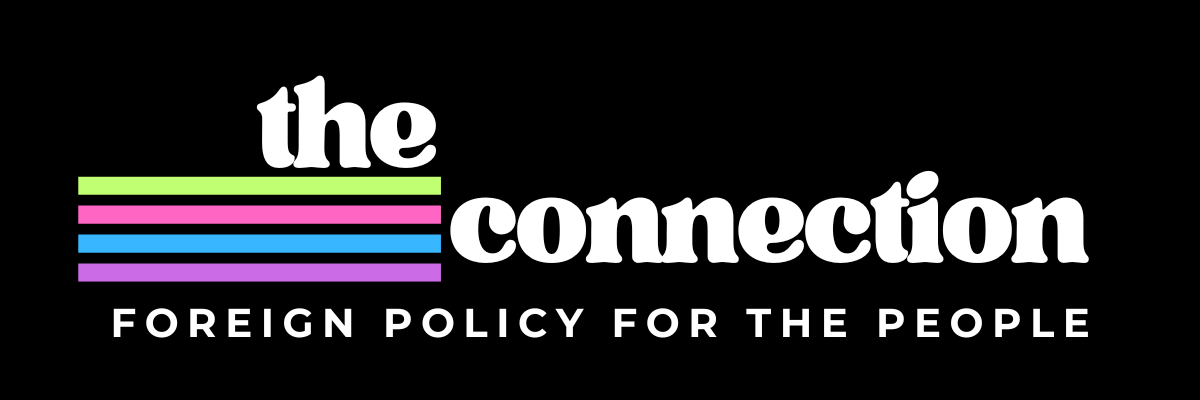Subscriber Sneak Peek 👀

Hi friends,
We’re in the final countdown until newsletter launch! In just one week, paid subscribers (including everyone doing a free trial!) will receive the first weekly installment of The Brief in their inboxes, and all subscribers will receive the first installment of Foundations on September 4th.
As a thank you to everyone who has already signed up, I wanted to share a sneak peek of what you can expect, this time in the form of an explainer on the situation in Venezuela. Without further ado, here’s what I’m tracking this week:
United States Sends Navy Assets to the Coast of Venezuela
Last week, President Trump deployed U.S. military assets, including Navy destroyers, aircraft, and thousands of Navy sailors and U.S. marines, to the coast of Venezuela in the south Caribbean Sea. The Trump administration has stated that it is taking these actions in order to combat drug trafficking and prevent drugs from entering the United States. This comes a few weeks after President Trump reportedly directed the Pentagon to use military force against drug cartels that have been designated as terrorist organizations, though the exact text of that directive has not been made public as of the time of this writing. One of the cartels designated as a terrorist organization is the Venezuelan group Cartel de los Soles.
What do maritime counter-narcotics operations usually look like? While it’s not unheard of for the U.S. military to participate in counter-narcotics operations at sea, where those operations have a law enforcement component, they are usually conducted by, or at least in cooperation with, the U.S. Coast Guard. Countries have the ability to board “stateless” vessels (vessels not registered to or flying the flag of any state) on the high seas that they suspect of smuggling drugs. They can also board suspect vessels that are registered to a state with the permission of that flag state, or subject to preexisting agreements with them.
The U.S. often cooperates with other coastal states to counter drug trafficking, including through international instruments called “shiprider agreements.” Under these agreements, officials from partner countries can ride along on Coast Guard vessels to patrol their country’s waters and authorize the interdiction of vessels suspected of drug trafficking or other illicit activity such as weapons smuggling or illegal, unreported, and unregulated fishing. Shiprider agreements can be key avenues of cooperation between the U.S. and other countries, as they allow the U.S. to contribute resources such as ships and personnel to help partners better enforce against illicit activity that spans maritime boundaries. However, the key word there is "cooperation." For a wide variety of reasons, including the escalating tensions between the U.S. and Venezuela, Maduro's alleged involvement in drug trafficking, and U.S. views on the status of Venezuela's government, bilateral cooperation is very unlikely to happen here. At the same time, if the military boards and seizes Venezuelan-flagged vessels either in Venezuelan waters or on the high seas without Venezuela's permission, we can expect significant pushback from Venezuela, including with respect to the legality of those boardings.
What is unusual about this situation?
1. The United States doesn’t recognize Maduro as the leader of Venezuela or his government as a legitimate government.
I’ll plan to do an explainer on U.S. recognition policy down the road, but as a very basic overview and with a few exceptions, general U.S. practice is to treat whoever’s in control of a state’s territory as the government of that country. However, in 2019, during the first Trump administration, the U.S. announced that it did not recognize Maduro as the legitimate president of Venezuela, and that it instead viewed opposition leader Juan Guaidó as the interim president. Secretary of State Rubio recently reiterated the U.S. position that Maduro’s government is illegitimate in a statement in July.
2. The United States has a $50 million reward out for the arrest of Maduro.
Earlier this month, U.S. Attorney General Pam Bondi announced that the U.S. was doubling a reward for the arrest of Maduro in connection with a 2020 indictment of Maduro in U.S. court on narcoterrorism charges. This reward isn’t new—it was initially issued under the first Trump administration, raised under the Biden administration, and has now been doubled to $50 million dollars—but its existence, in conjunction with U.S. statements on the illegitimacy of the government and the Pentagon directive described above, is raising fears that the U.S. intends to engage in regime change in Venezuela, and remove Maduro by force. Which brings us to:
3. It’s not clear what actions the military intends to take.
As outlined above, it doesn't appear that this is a routine maritime law enforcement operation such as those conducted by the U.S. Coast Guard. If the military conducts strikes against Venezuela on sea or on land, it’s hard to see how they could do this consistently with domestic and international law. I won’t launch us into a full-fledged discussion of the law of war here (though I might later! Stay tuned!), but in short, absent consent from Venezuela or authorization from the U.N. Security Council, the President would have to argue that the United States is acting in self-defense, and it’s unlikely that the actions of Venezuelan drug cartels could amount to an attack against the United States under international law. (If you’re interested in reading more about the potential arguments in this space, Lawfare published a really great explainer in December amid discussion of whether President-elect Trump would use force against cartels in Mexico when he returned to office.) For his part, Venezuelan president Nicolás Maduro stated that he was deploying militia around the country to defend against a U.S. invasion, and though it’s unclear how big this militia really is, the situation could escalate quickly, with potentially devastating consequences.
What to watch out for: Whether the text of the directive to the Pentagon is made public; whether there are any interactions between U.S. and Venezuelan forces; whether the U.S. executive branch seeks authorization from Congress to use military force in Venezuela or whether President Trump claims he is authorized to conduct any military actions under article II of the U.S. Constitution. Also watch out for whether any members of Congress seek to preemptively prohibit the use of force in Venezuela.
New Community Resource: Come to Terms!
Before we go, I want to flag one more feature I’m adding to The Connection’s community resources. I’m planning a series of short videos that I’ll post on social media explaining some of the basic terminology we use when we talk about foreign policy. The series is called “Come to Terms,” and I’d love to hear your suggestions for vocabulary to cover. Please feel free to drop me a comment or send me an email with your ideas!
Last but definitely not least: if you’re a free subscriber who’s interested in paid content, but you’re currently affected by RIFs, the skyrocketing cost of groceries, or any of the other financial swirl that is making it hard to get by these days, please reach out to me. I have some complimentary subscriptions I can make available, and I would love to make that happen for those who could benefit from it.
See you all next week!
Alexis
